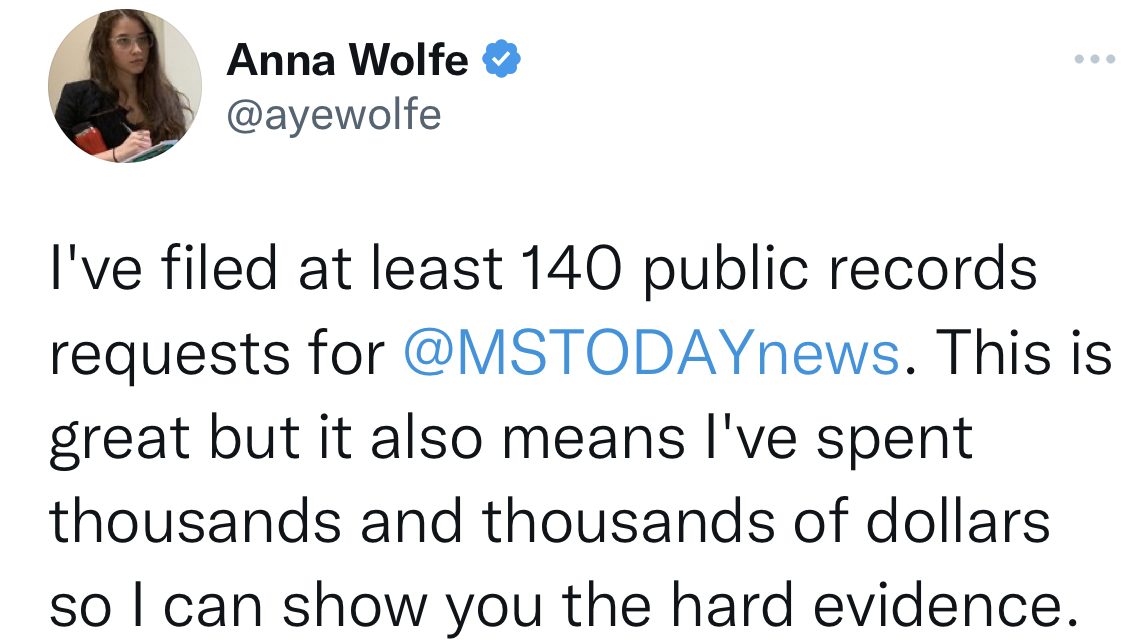
Once it identifies exactly how many millions of federal dollars Mississippi misused within its welfare program over the last several years, the U.S. Department of Health and Human Services will require the state to use its own funds to replace them.
A state audit conducted on behalf of the federal government and published in early May officially questioned $94 million in Mississippi Department of Human Services spending mostly from the Temporary Assistance for Needy Families program, including many purchases the auditor called absurd. Other purchases may have helped needy families but the auditor could not obtain documentation to discern whether they were legal expenditures.
The audit only examined spending in fiscal year 2019 and any earlier purchases the office may have identified in the course of the audit, such as though a contract that spanned multiple years. Officials have not determined the number of dollars that were misspent or stolen.
In early February, the auditor’s office arrested six people connected to the scheme, in which they allege former agency employees and officers from an educational services nonprofit embezzled more than $4.15 million. The investigation, which now includes the FBI, is ongoing.
“There are several ongoing federal and state investigations, which will likely mean a lengthy process before we can make our determination; however, we are eager to come to a final penalty resolution and ensure that the state replaces any misused federal TANF funds with its own state funds,” the federal agency said in a statement to Mississippi Today.
Allocating its own money to the welfare program will be a new exercise for the state, which is among the most reliant on federal dollars to perform services for its people.
Mississippi receives $86.5 million federal dollars each year from the TANF block grant program; the funding hasn’t increased since its creation in 1996. States must spend a certain number of state dollars, about $21.7 million in Mississippi in 2018, to draw down the funds.
Mississippi does not historically spend separate state funds for TANF-specific programs for its grant match, but reports its existing investment in college scholarships — which go more often to middle class families — as a TANF expense.
Mississippi Department of Human Services has commissioned a more thorough forensic audit to determine where it misspent every dollar. In order to replace the funds, the department said it will issue demand letters to recoup the property and funds from the improper recipients, primarily the nonprofit at the center of the scheme, Mississippi Community Education Center, and another nonprofit Family Resource Center of North Mississippi. “If we’re still not able to recoup at that time, we will pursue all legal options available to us,” Human Services spokesperson Danny Blanton said in an email.
The following is the full statement from the U.S. Health and Human Services’ Administration for Children and Families’ communication office to Mississippi Today:
We are aware that the Mississippi state audit has identified extensive fraudulent activity conducted by the programs designed to serve its most vulnerable citizens. It is critical that federal TANF funds are only used for allowable program costs intended to provide services to disadvantaged families. The next step for the Department of Health and Human Services is to determine the amount of the fraudulent and misused federal funds by the state program. This will allow HHS to proceed to the subsequent process of imposing a penalty against the state of Mississippi for misuse of TANF funds.
There are several ongoing federal and state investigations, which will likely mean a lengthy process before we can make our determination; however, we are eager to come to a final penalty resolution and ensure that the state replaces any misused federal TANF funds with its own state funds. While the specific audit concerned findings for 2019, any misuse of funds in prior years identified through investigations will also be the subject of penalty action.
We expect to work with the Mississippi Department of Human Services to help the state improve the way it oversees and monitors its program. Also, we use the audit process, as well as technical assistance to ensure that changes are in place to help prevent this sort of problem from happening in the future. This may involve additional monitoring if that proves necessary.
Read all of our coverage on Mississippi welfare here.


